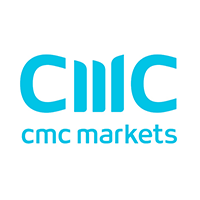Best Brokers For Beginners 2025
The best brokers for beginners are bringing more first-time investors into the market than ever. Mobile trading apps now account for 89% of retail investing. Fractional-share trading has grown by 52%, letting people buy into big-name stocks for just a few pounds.
In the first half of 2025, Charles Schwab, Fidelity, and Interactive Brokers signed up about 2.8 million new users. At BrokerGuide, we help you sort through the options so you can find the platform that truly aligns with your goals. Zero-commission trades and simple platforms have become the norm, opening the door for a new generation of investors.

Top 10 Best Brokers for Beginners 2025
Millions of new investors are entering the markets in 2025, but not all brokers are well-suited for beginners. Some make trading effortless, others can quietly eat into your profits. Here’s our shortlist of the top 10 platforms that combine simplicity, low costs, and the right features to help you start strong.

Interactive Brokers
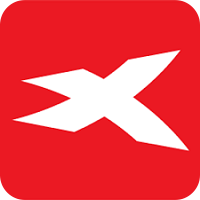
XTB
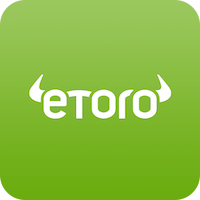
eToro
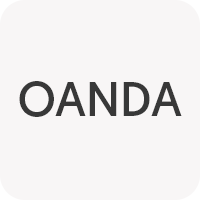
Oanda

IG
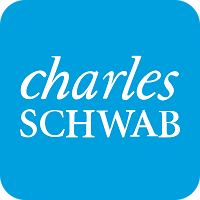
Charles Schwab

JP Morgan Self-Directed Investing
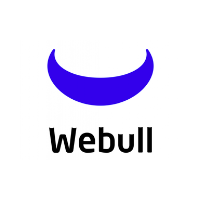
Webull

Trading 212

Plus500
Key Takeaways
If you’re just starting out, the best brokers for beginners in 2025 depend on your style.
- If you want the lowest costs and global access, Interactive Brokers or IG are hard to beat.
- For learning by copying experts, eToro is the clear pick.
- If forex is your focus, OANDA or XTB offer the simplest paths.
- For all-around investing and retirement planning, Charles Schwab or JP Morgan make it easy.
- If you prefer a mobile-first approach, Webull and Trading 212 are great for on-the-go trading.
- For a streamlined CFD platform, Plus500 keeps it simple.
No matter which you choose, always check fees, regulations, and account features before you sign up—your broker should fit you, not the other way around.
Top Brokers Key Features

Our Top Brokers Key Features table gives you a quick side-by-side look at each platform’s strengths. You’ll see our in-house ratings, the minimum deposit required, and how long it typically takes to open an account—so you can compare at a glance and find the one that fits your needs best.
| Broker | Overall Rating | Minimum Deposit | Account Opening Time |
|---|---|---|---|
| Interactive Brokers | 4.9/5 | $0 | 1-3 days |
| XTB | 4.8/5 | $0 | 1 day |
| eToro | 4.7/5 | $50 | 1 day |
| Oanda | 4.6/5 | $0 | 1-3 days |
| IG | 4.6/5 | $0 | 1-3 days |
| Charles Schwab | 4.6/5 | $0 | 1 day |
| JP Morgan Self-Directed | 4.5/5 | $0 | 1 day |
| Webull | 4.4/5 | $0 | 1 day |
| Trading 212 | 4.4/5 | $1 | 1 day |
| Plus500 | 4.3/5 | $100 | 1 day |
How to Choose a Broker for Beginners
Starting your investing journey is exciting, but picking the wrong broker can make it harder than it needs to be. Here’s what to look for when you’re just getting started:
By weighing these factors, you can narrow the choices and pick a broker that gives you the right balance of safety, simplicity, and growth potential.
4 Critical Pitfalls to Avoid
Even with the best brokers for beginners in 2025, small mistakes can cost you big. Avoid these common traps:
Ignoring Fees Beyond Commissions
Many beginners focus only on trading commissions, but hidden costs—like high spreads, overnight financing rates, and withdrawal fees—can quickly eat into profits.
Skipping Regulation Checks
If a broker isn’t licensed by a reputable authority like the FCA, SEC, or ASIC, your money and data could be at serious risk.
Overleveraging Early On
Leveraged trading can multiply profits, but it can also wipe out your account just as fast. Beginners should start with low or no leverage until they fully understand the risks.
Chasing Hot Tips Instead of Research
Following trends or influencer “hot picks” without checking the facts can lead to impulsive, high-risk trades. Use your broker’s research tools to make informed decisions.
Online Brokers - Users Data
Our community of traders and investors regularly shares their experiences, giving us real-world insight you won’t find in marketing materials. This section compiles ratings and feedback from our user database, covering everything from platform reliability and ease of use to customer service and fees. By combining these scores with our own analysis, we can highlight how each broker performs in practice based on the people who use them every day.










Fee Comparison
Costs can quickly eat into your returns, especially when you’re starting. In this section, we break down what each broker charges for US stocks, UK stocks, forex spreads, and mutual funds. By comparing these side by side, you can spot which platforms offer the best value for your trading style and avoid fees that chip away at your profits.
| Broker | US Stock | UK Stock | EURUSD Spread | Mutual Fund | US Stock Index Options |
|---|---|---|---|---|---|
| Interactive Brokers | $1 | $3.8 | 0.1 | $15 | $6.5 |
| XTB | $0 | $0 | 0.6 | Not Available | Not Available |
| eToro | $0 | $0 | 1.0 | Not Available | Not Available |
| Oanda | $0 | $0 | 1.0 | Not Available | Not Available |
| IG | $10 | $10.1 | 0.6 | Not Available | $10 |
| Charles Schwab | $0 | Not Available | 1.4 | $25 | $6.5 |
| JP Morgan Self-Directed Investing | $0 | Not Available | Not Available | $0 | $6.5 |
| Webull | $0 | Not Available | Not Available | Not Available | $5.5 |
| Trading 212 | $0 | $0 | 1.0 | Not Available | Not Available |
| Plus500 | Not Available | Not Available | 1.1 | Not Available | Not Available |
Non-Trading Fees
Trading isn’t the only place brokers can charge you, non-trading fees can add up just as quickly. These include costs like account inactivity fees, deposit and withdrawal charges, currency conversion rates, and overnight financing for open positions. In this section, we outline each broker’s non-trading fees so you can factor them into your decision and avoid unpleasant surprises later on.
| Broker | Account Fee | Inactivity Fee | Withdrawal Fee | Deposit Fee |
|---|---|---|---|---|
| Interactive Brokers | $0 | $0 | ||
| XTB | $0 | $0 | ||
| eToro | $5 | $0 | ||
| Oanda | $0 | $0 | ||
| IG | $0 | $0 | ||
| Charles Schwab | $0 | $0 | ||
| JP Morgan Self-Directed | $0 | $0 | ||
| Webull | $0 | $0 | ||
| Trading 212 | $0 | $0 | ||
| Plus500 | $0 | $0 |
Regulations and Safety Measures
Trust is non-negotiable when choosing a broker. All platforms featured here are regulated by reputable financial authorities such as the FCA in the UK, the SEC in the US, or ASIC in Australia.
Regulation ensures brokers follow strict rules on client fund protection, transparency, and operational integrity. Many also provide additional safeguards like segregated client accounts, negative balance protection, and two-factor authentication. This section outlines each broker’s regulatory status and the measures they take to keep your money and data secure.
Compensation Schemes
Compensation schemes are financial safety nets designed to protect traders if their broker becomes insolvent or fails to return client funds. The level of protection depends on the broker’s regulatory jurisdiction.
☑️ United Kingdom – FSCS (Financial Services Compensation Scheme)
Covers eligible clients up to £85,000 if a regulated broker fails.
☑️ United States – SIPC (Securities Investor Protection Corporation)
Protects securities up to $500,000, including a $250,000 cash limit, in case of broker insolvency.
☑️ European Union – Investor Compensation Schemes
Varies by country; for example, Cyprus offers up to €20,000 per client under the ICF.
☑️ Australia – No Government Compensation
ASIC-regulated brokers must keep client funds in segregated accounts, but there’s no state-backed payout scheme.
Always check which scheme applies to your broker and understand both the coverage limits and the types of assets protected.
Red Flags - Unregulated Brokers
Avoid entities without verifiable licenses—common risks include:
❌ Withdrawal Delays - 42% of fraud complaints stem from blocked fund access.
❌ Price Manipulation - Unregulated platforms often artificially trigger stop-losses.
How to Verify Your Broker’s Legitimacy
☑️ Check the broker’s website about us page or footer for license numbers.
☑️ Cross-reference numbers on the regulator’s site (e.g., FINRA BrokerCheck, FCA Register).
We highly recommend you read our reviews and guides about trusted brokers on BrokerGuide. You’ll find a wealth of information to help you make informed decisions.
Comparing the Best Brokers
Choosing a broker becomes easier when you can see the highlights side by side. In this section, we provide quick snapshots of each platform along with their biggest strengths, so you can quickly identify which ones match your needs. From standout features to unique advantages, these overviews give you a clear picture of what each broker does best.

Interactive Brokers
Recommended for active traders who want access to global markets, low commissions, and professional-grade tools.
| Interactive Brokers Overview | Interactive Brokers Data |
|---|---|
| Minimum Deposit | $0 |
| Deposit Method | Bank Transfer |
| Withdrawal Method | Bank Transfer |
| Withdrawal Fee | $0 |
| Account Opening Time | 1-3 Days |
| Inactivity Fee | |
| Review | Read Here |

XTB
Recommended for those who want a user-friendly platform with a solid mix of CFDs, forex, and educational content.
| Interactive Brokers Overview | Interactive Brokers Data |
|---|---|
| Minimum Deposit | $0 |
| Deposit Method | Bank Transfer, Credit Cards, Debit Cards, PayPal, Paysafe, Skrill, PayU, Ecommpay |
| Withdrawal Method | Bank Transfer |
| Withdrawal Fee | $0 |
| Account Opening Time | 1 Day |
| Inactivity Fee | |
| Review | Read Here |

eToro
Recommended for beginners who want to copy experienced traders and explore both stocks and cryptocurrencies.
| Interactive Brokers Overview | Interactive Brokers Data |
|---|---|
| Minimum Deposit | $50 |
| Deposit Method | Bank Transfer, Credit and Debit Cards, eToro Money, Neteller, Skrill, Klarna, Giropay, Trustly, iDEAL, RapidTransfer, Przelewy 24 |
| Withdrawal Method | Bank Transfer, Credit and Debit Cards, eToro Money, Neteller, Skrill, Klarna, Giropay, Trustly, iDEAL, RapidTransfer, Przelewy 24 |
| Withdrawal Fee | $5 |
| Account Opening Time | 1 Day |
| Inactivity Fee | |
| Review | Read Here |

Oanda
Recommended for forex traders who value transparent pricing, tight spreads, and flexible account options.
| Interactive Brokers Overview | Interactive Brokers Data |
|---|---|
| Minimum Deposit | $0 |
| Deposit Method | Bank Transfer, Credit Cards, Debit Cards, PayPal, Skrill, Neteller |
| Withdrawal Method | Bank Transfer, Credit Cards, Debit Cards, PayPal, Skrill, Neteller |
| Withdrawal Fee | $0 |
| Account Opening Time | 1-3 Days |
| Inactivity Fee | |
| Review | Read Here |

IG
Recommended for investors seeking a wide range of markets, fast execution, and strong research resources.
| Interactive Brokers Overview | Interactive Brokers Data |
|---|---|
| Minimum Deposit | $0 |
| Deposit Method | Bank Transfer, Credit Card, Debit Card, HK FPS, Wise |
| Withdrawal Method | Bank Transfer |
| Withdrawal Fee | $0 |
| Account Opening Time | 1-3 Days |
| Inactivity Fee | |
| Review | Read Here |

Charles Schwab
Recommended for long-term investors who want zero-commission trades, strong research, and retirement planning tools.
| Interactive Brokers Overview | Interactive Brokers Data |
|---|---|
| Minimum Deposit | $0 |
| Deposit Method | Bank Transfer |
| Withdrawal Method | Bank Transfer |
| Withdrawal Fee | $0 |
| Account Opening Time | 1 Day |
| Inactivity Fee | |
| Review | Read Here |

JP Morgan Self-Directed Investing
Recommended for customers who want commission-free investing integrated with their banking services.
| Interactive Brokers Overview | Interactive Brokers Data |
|---|---|
| Minimum Deposit | $0 |
| Deposit Method | Bank Transfer |
| Withdrawal Method | Bank Transfer |
| Withdrawal Fee | $0 |
| Account Opening Time | 1 Day |
| Inactivity Fee | |
| Review | Read Here |

Webull
Recommended for tech-savvy traders seeking commission-free US trading, extended hours, and robust charting tools.
| Interactive Brokers Overview | Interactive Brokers Data |
|---|---|
| Minimum Deposit | $0 |
| Deposit Method | Bank Transfer |
| Withdrawal Method | Bank Transfer |
| Withdrawal Fee | $0 |
| Account Opening Time | 1-3 Days |
| Inactivity Fee | |
| Review | Read Here |

Trading 212
Recommended for beginners who want commission-free investing, fractional shares, and an easy-to-use app.
| Interactive Brokers Overview | Interactive Brokers Data |
|---|---|
| Minimum Deposit | $1 |
| Deposit Method | Bank Transfer, Credit Cards, Debit Cards, OnlineBankingPL, Apple Pay, Google Pay, Paypal, Giropay, Direct eBanking, , iDEAL, Carte Bleue, Blik |
| Withdrawal Method | Bank Transfer, Credit Cards, Debit Cards, OnlineBankingPL, Apple Pay, Google Pay, Paypal, Giropay, Direct eBanking, , iDEAL, Carte Bleue, Blik |
| Withdrawal Fee | $0 |
| Account Opening Time | 1 Day |
| Inactivity Fee | |
| Review | Read Here |

Plus500
Recommended for traders looking for a simple, mobile-focused CFD platform with a wide choice of instruments.
| Interactive Brokers Overview | Interactive Brokers Data |
|---|---|
| Minimum Deposit | $100 |
| Deposit Method | Bank Transfer, Credit Cards, Debit Cards, Paypal, Skrill |
| Withdrawal Method | Bank Transfer, Debit Cards, Paypal, Skrill |
| Withdrawal Fee | $0 |
| Account Opening Time | 1 Day |
| Inactivity Fee | |
| Review | Read Here |
Key Takeaways
For most beginners, the best choice is a broker that’s easy to navigate, charges little or no commission on core products like stocks and ETFs, and offers clear educational support. Platforms such as Trading 212, eToro, and Webull stand out for their beginner-friendly interfaces and low entry barriers.
If you want a broader product range with global market access, Interactive Brokers and IG are excellent picks. Those seeking strong research and long-term investing tools may prefer Charles Schwab or J.P. Morgan Self-Directed Investing.
For forex-focused traders, OANDA and XTB offer competitive spreads and solid platforms, while Plus500 provides a straightforward way to trade CFDs across multiple markets. Whatever you choose, make sure the broker is well-regulated, safe, and matches your learning pace.
Why Trust Broker Guide?
We know that choosing a broker can feel overwhelming, especially when so many reviews online are biased or outdated. At BrokerGuide, we aim to give you honest, data-backed insights so you can make confident investing decisions.
Here’s why you can trust our recommendations:
Independent reviews
We do not accept payments for positive ratings or preferential placement.
Real user data
Our rankings combine expert analysis with feedback from our own user community.
Regular updates
All broker information, fees, and features are checked and updated frequently to stay accurate.
Global coverage
We review brokers regulated by top-tier authorities worldwide, including the FCA, SEC, and ASIC.
Hands-on testing
Our team opens accounts, tests platforms, and verifies claims directly with each broker.
Transparent criteria
We clearly explain how we score brokers, so you know exactly what factors influence our rankings.
"With BrokerGuide, you get clear, unbiased information to help you choose the broker that truly fits your needs."
Broker Guide Tweet
How We Score Brokers
We believe rankings are meaningless without transparency. Our scoring system, refined 10,000+ hours of testing, evaluates brokers against 106 objective criteria, grouped into 5 weighted pillars. Each pillar reflects what actual traders prioritize, based on surveys of 20,000+ readers and market gap analyses. Here’s how we turn raw data into actionable insights:
1. Fees & Costs (30%)
Low commissions mean little if hidden fees erode returns.
☑️ We tracked 500+ live trades to measure spread consistency (e.g., Pepperstone’s EUR/USD vs. IG’s).
☑️ Audited non-trading fees such as inactivity penalties, withdrawal costs (eToro’s $5 fee), currency conversions (Oanda’s 0.9% markup).
☑️ Modelled long-term costs. Compared $10,000 portfolio scenarios (e.g., Schwab’s $0 equity fees vs. XTB’s CFD financing charges).
2. Safety & Regulation (25%)
Your capital’s security is non-negotiable.
☑️ Verified licenses with regulators (e.g., FINRA ID 36408 for Interactive Brokers).
☑️ Confirmed fund segregation via bank statements (e.g., Fidelity’s JPMorgan Chase accounts).
☑️ Stress-tested encryption. Attempted breaches on dummy accounts (256-bit SSL minimum).
☑️ Tracked compensation schemes. SIPC ($500k) vs. FSCS (£85k) vs. ASIC’s requirements.
3. Tools & User Experience (20%)
Clunky tools cost time and opportunities.
☑️ We measured platform stability during volatility (e.g., thinkorswim’s crash rate vs. Trading 212’s).
☑️ Rated mobile apps (iOS/Android) for speed, biometric security, and order-fill latency.
☑️ Audited advanced features: Backtesting capacity (SaxoTraderPRO), API reliability (Oanda), AI charting (IG’s ProRealTime).
4. Asset Diversity (15%)
Diversification shouldn’t require 5 brokers.
☑️ Mapped instrument coverage. Stocks (Schwab), forex (Pepperstone), crypto (eToro), bonds (Fidelity).
☑️ Verified market access. Pre-market hours (IBKR), weekend indices (IG), global exchanges (Saxo).
☑️ Checked fractional share support (Trading 212) and micro-lot trading (Oanda).
5. Support & Reliability (10%)
When markets move, slow support loses money.
☑️ Timed response rates. 24/7 chat (Pepperstone: 28s avg), phone (Schwab: 2m 14s), email (XTB: 6h).
☑️ Submitted complex queries. Tax docs (Fidelity), margin errors (IBKR), withdrawal disputes (eToro).
☑️ Monitored outage frequency during earnings/NFP events.
FAQ
What is the easiest broker for beginners to use?
Trading 212, eToro, and Webull are often praised for their clean, intuitive interfaces that make navigation simple for first-time investors.
Which broker has the lowest minimum deposit?
Most brokers allow you to start with as little as $1–$10, making them accessible for those on a tight budget.
Are all these brokers regulated?
Yes, each broker listed is regulated by major authorities such as the FCA, SEC, ASIC, or equivalent bodies in their operating regions.
Which broker offers the widest range of markets?
Interactive Brokers and IG provide access to thousands of markets worldwide, from stocks and ETFs to forex, futures, and options.
Can I invest in cryptocurrencies with these brokers?
Yes, eToro, Webull, and IG offer crypto trading, while others like Charles Schwab and J.P. Morgan focus on traditional asset classes.
Which broker is best for forex trading?
OANDA and XTB are strong choices for forex traders, offering competitive spreads and transparent pricing.
Are there brokers here that focus on CFDs?
Yes, Plus500 and IG are well known for their CFD trading, offering instruments across multiple asset classes.
How long does it take to open an account?
Most brokers here allow you to open and verify an account within 1–2 business days, with some completing the process in minutes.
Which broker has the best research tools?
Interactive Brokers, IG, and Charles Schwab stand out for their in-depth research, advanced charting, and market analysis.
How do I know which broker is right for me?
Consider your goals, preferred markets, budget, and trading style. Use our comparisons on fees, features, and safety to choose a broker that matches your needs.
What’s the safest way to deposit and withdraw funds with a broker?
The safest methods are regulated payment options like bank transfers, major credit/debit cards, and trusted e-wallets (PayPal, Skrill, Neteller) offered directly through the broker’s secure portal. Always enable two-factor authentication for extra protection.
Can I use multiple brokers at the same time?
Yes. Many traders use different brokers for different asset classes or to compare fees, platforms, and features. Just ensure you can manage the accounts efficiently and keep track of your funds.




